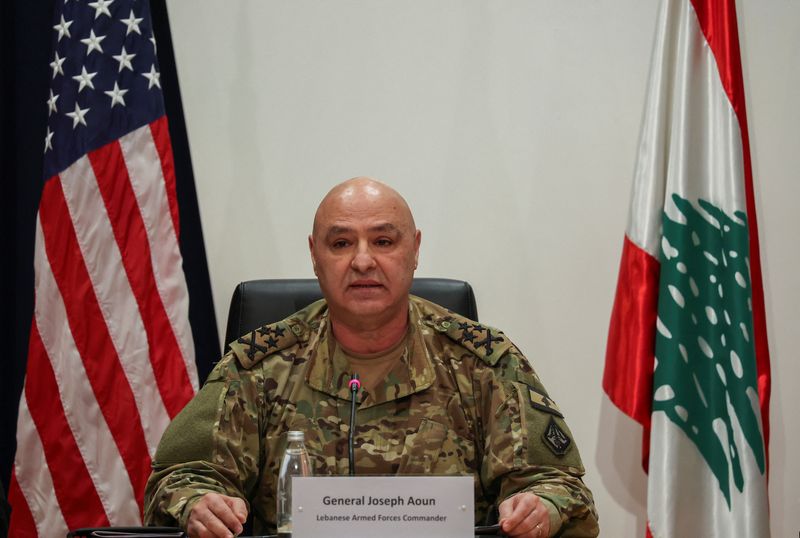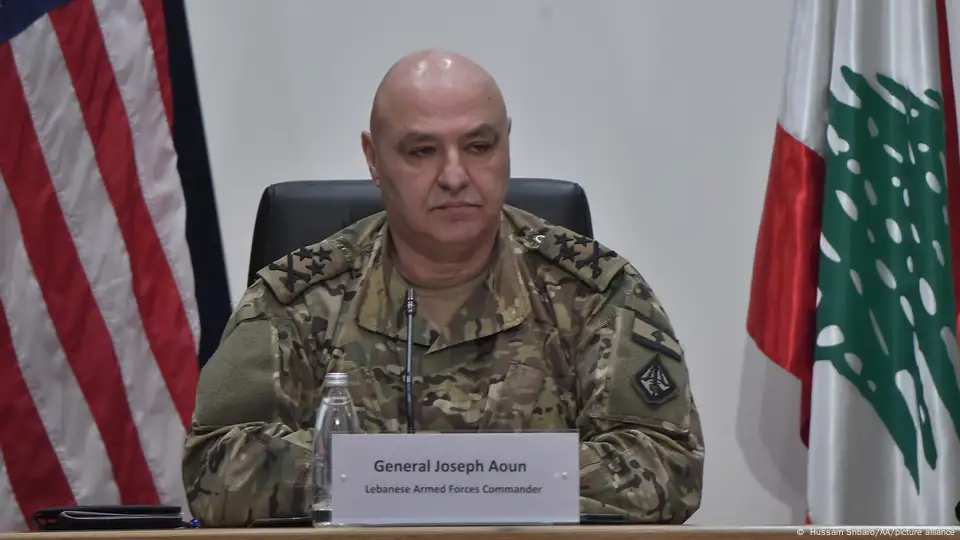Lebanon’s parliament has elected General Joseph Aoun, the commander of the Lebanese Armed Forces, as the country’s new president, bringing an end to a two-year leadership vacuum that contributed to deepening political and economic crises. Aoun, who received 99 out of 128 votes, managed to secure backing from across the political spectrum, including rival factions such as Hezbollah and its opponents. This rare moment of consensus has raised hopes for greater political stability in a nation grappling with severe challenges.
Aoun’s candidacy was widely seen as aligned with U.S. interests, given Washington’s longstanding support for the Lebanese military through funding, training, and arms. His presidency coincides with the implementation of a U.S.-brokered ceasefire between Israel and Hezbollah, which aims to stabilize Lebanon’s southern border and prevent further conflict.
Under the agreement, the Lebanese military is expected to deploy to southern regions to fill the security gap left by Israeli forces and limit Hezbollah’s ability to rearm. Aoun’s leadership is considered key to ensuring the success of these measures.
The election comes at a critical time for Lebanon, as the country faces a prolonged economic collapse and the aftermath of devastating conflicts. The World Bank estimated the damages from recent hostilities at $8.5 billion, underscoring the urgent need for reconstruction efforts.
Lebanon’s financial crisis, now in its fifth year, has drastically reduced the country’s GDP and left much of the population struggling with unemployment, poverty, and inflation. Aoun’s presidency is expected to focus on initiating the long-delayed reforms needed to address these issues and unlock much-needed international aid.

Hezbollah’s role in Aoun’s election highlights its enduring influence in Lebanese politics. The group, which is backed by Iran, played a pivotal role in securing parliamentary votes for Aoun after its initial candidate, Suleiman Franjieh, withdrew.
Along with its political ally, the Amal party, Hezbollah controls a significant portion of the Shiite vote in parliament and will remain a powerful force in shaping the next government. While Aoun’s presidency may signal a willingness to pursue reforms, Hezbollah’s influence could pose challenges to reducing Iranian sway in Lebanon and meeting international expectations.
Lebanon’s sectarian political system, established to maintain balance among its diverse communities, designates the presidency to a Maronite Christian, the prime ministership to a Sunni Muslim, and the parliamentary speaker role to a Shiite Muslim. Joseph Aoun is the 14th president of Lebanon and the fifth army commander to ascend to this position.
Despite a reduction in presidential powers following the end of Lebanon’s civil war in 1990, the role remains vital for ratifying treaties, signing legislation, and forming governments. Aoun’s military background and reputation for pragmatism are expected to help him address the country’s challenges.
Joseph Aoun has built a career marked by resilience and adaptability. He joined the Lebanese army as a cadet in 1983 during the civil war and rose steadily through the ranks to become the commander of the armed forces in 2017. During Lebanon’s financial collapse, Aoun is credited with maintaining the integrity of the military despite severe economic hardships.
By allowing soldiers to take on secondary jobs to supplement their incomes, he prevented the army from disbanding and ensured its continued operation. His leadership during these crises has earned him respect both within Lebanon and internationally.

The international community sees Aoun’s election as an opportunity for Lebanon to pursue reforms and secure foreign assistance. In the lead-up to the vote, U.S. and French envoys worked with Lebanese leaders to break the political deadlock and reach a consensus. U.S. envoy Amos Hochstein held discussions with Christian leader Samir Geagea, who later expressed support for Aoun.
French envoy Jean-Yves Le Drian also met with Hezbollah lawmakers, signaling coordinated efforts to facilitate the election. Aoun’s presidency is viewed as a step toward restoring stability, but substantial challenges remain, including balancing the demands of domestic factions and addressing regional tensions.
The road ahead for Lebanon under Aoun’s leadership is fraught with difficulties. The new president must contend with Hezbollah’s strong political and military influence, which could complicate efforts to implement reforms and reduce foreign interference.
At the same time, the country’s economic collapse demands urgent action to rebuild trust in financial institutions and improve living conditions for its citizens. While Aoun’s election has brought a measure of hope, the depth of Lebanon’s crises will require concerted efforts and cooperation among political factions, as well as sustained support from the international community.


